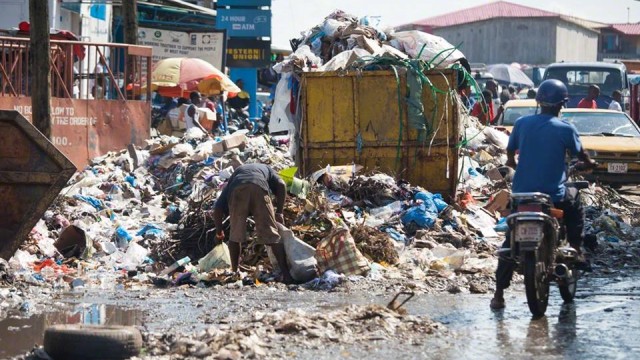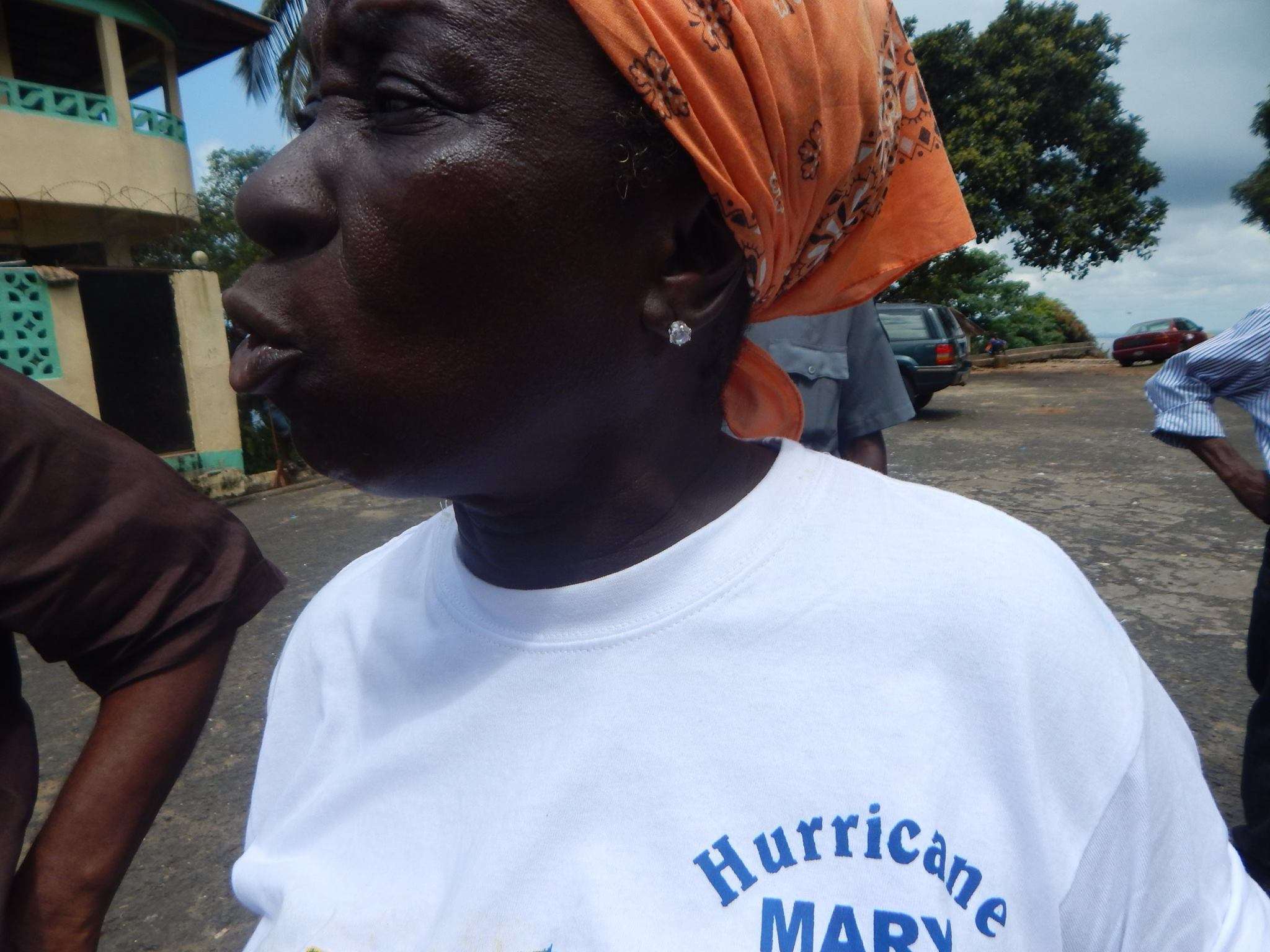The name Mary Broh has resurfaced in Monrovia.
Wherever this lady passes, some residents clamor in total frustration while others salute her as she enforces her mandate to clean Monrovia — what should be a function of a city mayor.
Broh’s task force, requested by President Ellen Johnson Sirleaf, often leaves homes in total ruins, hopes broken and families homeless. Is the work of the task force worth that much, to the detriment of these families?
Monrovia is home to about 1.1 million inhabitants. This number includes a jobless and youthful population, a growing poor class, and an uneven distribution of wealth among other things. This reality can be seen from some of the slum communities of West Point and New Kru Town, where more than 80% of the people are living with just a dollar per day — as we say, hand to mouth.
With little or nowhere to settle, these people have over time and out of choice, built shacks that would seem barely habitable, while striving to provide for their families by selling on the sidewalks of streets, and in traffic, all in a rather collapsed economic system. Since the beginning of the civil wars, this has remained the case, causing the influx of debris which often results in massive floods due to inadequate drainage systems.
It is in this regard, that the “General” – and now Hurricane Broh – comes into action, smashing market stalls, demolishing shacks, destroying properties and ruining lives. But is this right?
Mary Broh is missing something here, and if the project is not terminated, it could end up as a fantasy and a government-sponsored machine simply for the destruction of homes.
Random demolition of family homes and a few community clean-up campaigns are not effective tools for cleaning an entire city. While one must be keen to realize that some of Broh’s efforts have yielded basic results, we must also realize that the continuously littered and flooded streets of Monrovia are evidence of a failed system.
Broh’s draconian methods show a total disregard for human rights and dignity as homeowners are whipped mercilessly for disobeying her.
Perhaps what Broh and the Government of Liberia must come to realize is that in a struggling economy, the slums are inhabited by people who cannot afford an air-conditioned apartment that is fully fenced and electrified – some of the many amenities enjoyed by government officials – and as such, they must not be regarded as garbage.
Even after a new government is elected in 2017, these slum communities will remain as they are. Monrovia will still be cluttered in debris.

Trash shown in Monrovia. Photo: Zeze Ballah
So the question remains: will Mary Broh continue to sweep Monrovia, demolish shacks, destroy market stalls without contemplating a systematic solution to the massive growth of slum communities and inhabitants who have no other means for survival? Is this entire project a gimmick?
One would not take too long to realize that Broh’s actions follow the adage of “doing the same thing over and over and expecting different results.”
Serious people would always seek rational alternatives to persisting problems, a change of the non-workable way of doing things to a rather realistic and systems-based policy that would identify the cause and provide a solution.
For a city with electricity and safe drinking water available to less than 5% of its inhabitants, a structurally challenged road network, and an inadequate drainage system, the problems do not emanate from poor people who are victims of institutional failure and are found in the trappings of a collapsed economy.
These random initiatives to break down homes and market stalls and cripple sources of income are burdens borne more by families. Does Broh under the mandate of the Government compensate these people for their property? Is there temporary housing available for people whose homes are demolished?
When the family — whether small, poor, rich or strong — is divided and destroyed, our communities are soon broken down. Either we have families, the nuclei of the society, strengthened or we don’t have a country at all.
Instead of bringing in heavy equipment into communities, a supported decentralized community leadership can prove better at preserving and cleaning the environment.Â
Even in cases of demolition of shacks situated in alleys and street corners, the families must be compensated, treated with dignity and respect, and given due notice to vacate the area within a reasonable period.
Many would argue that Broh’s actions are appropriate. To such proponents: this is not about whether one isn’t futuristic or looking out of the box to see what Monrovia would become as a result of Hurricane Broh’s project. It is rather the failure of it all.
Modern democracies have shown stories of success when the central Government is supported from the bottom to the top.
The creation of community-supported task forces, which could provide employment for vulnerable youths, could beautify Monrovia’s streets and communities.
What claimed the attention of many Liberians recently is FrontPage Africa’s November 12 publication that read in boldfaced ‘WHIPPING MARY,’ MARY BROH SPECIAL TASK FORCE PARADES ‘CHILD PROSTITUTES.’ With total shock and dismay, many serious and conscious Liberians stood for what is right by demonizing such criminal act, which was a total disregard for human dignity and a gross violation of the right of children.
Liberia has long passed the days of culturally-inspired justice or corporal punishments. In the case of this “General,â€Â when misuse or abuse of power is not subject to continual challenge and questioning, it eventually becomes the new normal.
Not only has Broh under the appointment of President Ellen Johnson Sirleaf violated the rights of these poor girls — who evidently are forced into what they do because of institutional failure — but she has also violated their privacy, pride, and dignity.
Will 50 lashes on a vulnerable young girl take away the apparent hardship and sometimes unthinkable things she has to go through to find a meal every day? One must be under an illusion to think so.
Perhaps what the Government and Mary Broh must recognize are the tremendous difficulties and frustrations these young girls have and feel and that with no provision for their protection and welfare, they are left with few choices to survive.
Such disregard for the rights and welfare of these girls ironically occurred under a woman president.
Even after the nightmare of Ebola, Broh does not realize that these demolished shacks, destroyed market stalls, and lost hope lost are the only possessions of many people facing extreme poverty.
Until this regime or the one after begins to think of a systematic way out, Monrovia will still be as it was nearly 12 years ago and West Point, the largest slum community, will lie there without any opportunity for advancement.
Featured photo by Zeze Ballah



